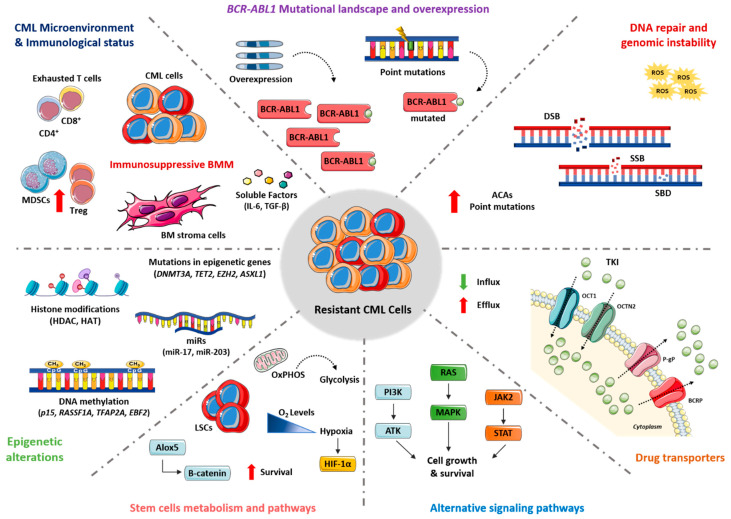Figure 1.
Molecular mechanisms of resistance to TKIs in CML. The molecular mechanisms responsible for TKI resistance in CML include: BCR-ABL1 mutations and BCR-ABL1 overexpression; alteration of DNA damage repair and genomic instability (increasing the additional chromosome abnormalities (ACAs) and point mutations); changes in drug transporters activity (e.g., increased efflux and decreased influx); activation of alternative signaling pathways (e.g., PI3K/AKT, JAK/STAT, and RAS/MAPK); changes in leukemia stem-cell metabolism and pathways (e.g., metabolic shift, Hypoxia/HIF-1α, and Alox5/β-catenin); epigenetic alterations (e.g., mutations on epigenetic regulating genes such as DNMT3A and/or increased methylation of p15 and EBF2 genes); altered expression of microRNAs (e.g., miR-17 and miR-203); changes in the microenvironment and immunological status (e.g., immunosuppressive bone marrow microenvironment (BMM) with increased MDSCs and Treg, plus exhausted T cells).

